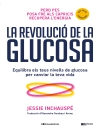In ‘The Easiest Way in Housekeeping and Cooking, ‘ Helen Campbell presents a groundbreaking approach to domestic management and culinary practices that resonates with both the late 19th-century domestic reform movements and modern efficiency principles. Written in a clear, instructional style, Campbell’s work meticulously outlines practical strategies for daily tasks, emphasizing simplicity and accessibility in both housekeeping and cooking. The book is rich in detail, offering a wealth of recipes and household tips designed to alleviate the burdens placed on women of the era, reflecting a broader social commentary on women’s roles in society and their empowerment through effective management of home life. Helen Campbell, an influential figure in the realms of domestic science and women’s reform, drew upon her own experiences as a homemaker and her advocacy for women’s education to write this seminal work. Her background in social reform and her commitment to improving the lives of women inform the practical guidance that permeates her writing, making her an essential voice in the discourse on domesticity during her time. Campbell’s scholarship reveals not only her expertise in cooking and housekeeping but also her deep understanding of the societal challenges faced by women. This book is highly recommended for anyone interested in the historical development of domestic science or the role of women in society. Campbell’s insightful perspectives remain relevant and offer timeless techniques for efficient household management, making it an invaluable resource for contemporary readers seeking both practical advice and a glimpse into the transformative era of women’s empowerment.
Про автора
Helen Campbell emerged as a distinct and influential voice in the domestic literature of the late 19th century. With a keen interest in the intersection of practicality and domestic science, her seminal work, ‘The Easiest Way in Housekeeping and Cooking’ (1881), carved a niche in household management literature, aligning it with the Progressive Era’s push towards efficiency and reform. This book reflects Campbell’s pragmatic approach to domesticity, a philosophy that advocates for simplicity and economy in household tasks while also ensuring nutritional and hygienic standards. The volume stands as a testament to her belief in empowering women through education and practical skills, a cornerstone of her literary style which effectively combined instruction with advocacy. Her writing not only offered recipes and kitchen tips but also integrated guidance on household operation and the importance of women’s roles within the home. Campbell’s contribution to literature goes beyond mere cookbooks; it encapsulates a movement towards rational homemaking and the elevation of women’s work in the domestic sphere to an art deserving of study and respect. Her work serves not only as a historical artifact but as a window into the societal expectations and transformations of her time, thereby granting her a lasting legacy in the canon of domestic literature.











